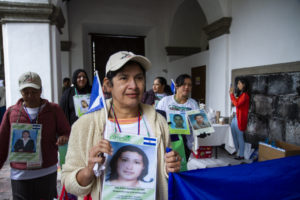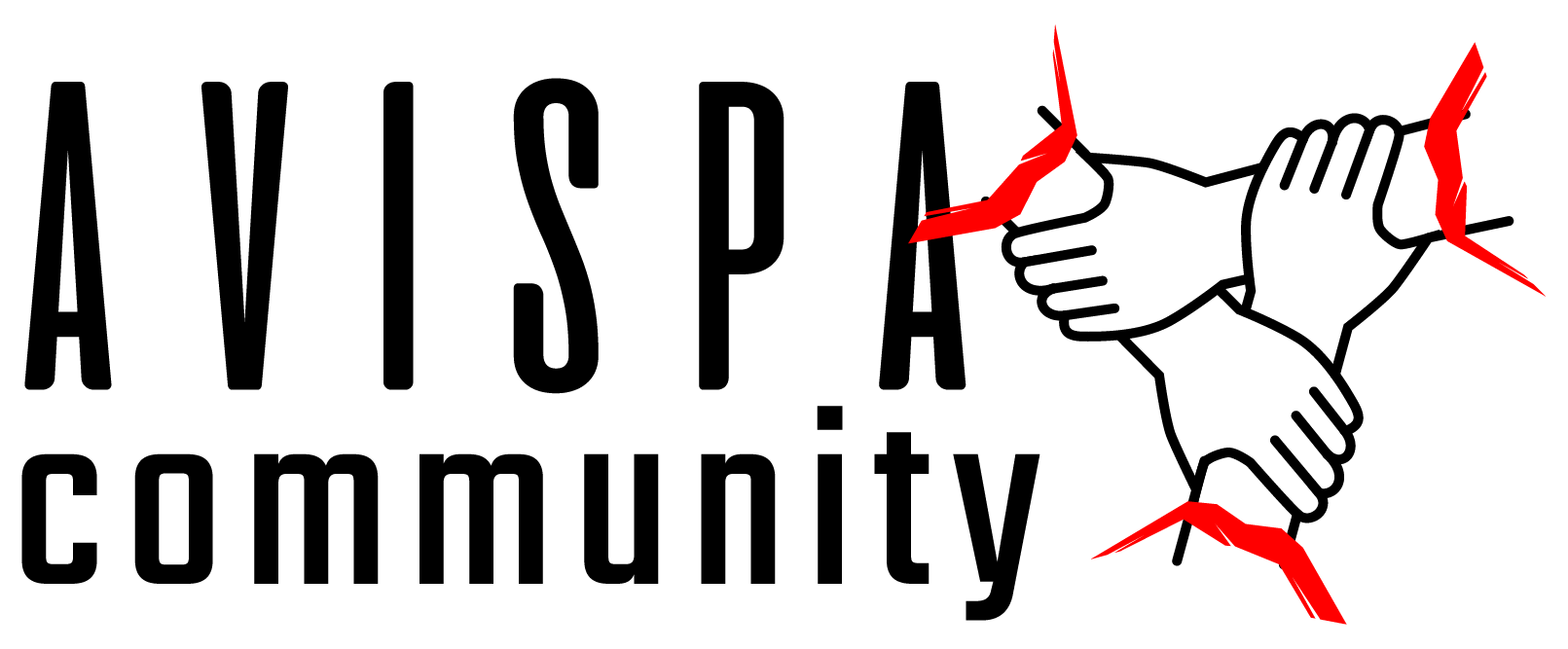Translated by Leif Johnson
Laloua Moutbena is one of many mothers from Mauritania, in Northeastern Africa, who is looking for her disappeared children. Her son, Yatoub, left the country one day, fleeing economic crisis and searching for a better life. "He wanted to help his brothers and his mother", Laloua shared in a letter sent to the many mothers in Central America and Mexico who have been searching for their children for more than a decade.
On the 2nd, 3rd, and 4th of November, mothers of disappeared children around the world met for the first time in Mexico City. Their shared language was one of pain and the strength needed to keep up the search for their children. They cried, shared, and recognized the fact that disappearances are taking place all around the world, and that this is a systematic issue, with origins in a crisis of the capitalist system.
Nadia Trima, a mother from Tunisia, has been searching for her son Chemami Mehdi Zine for ten years. She says that he decided to emigrate to Italy in search of a better life, but she never heard from him again. "We are searching for our children, the more than 500 young Tunisians who have disappeared. We place the responsibility for these disappearances in the hands of the Tunisian state, and we demand justice", Trima told Avispa Midia.
The organization "France-Americ Latin" has analyzed and documented the causes of migration to Europe, and argues that the economic and financial crisis of 2008, as well as the Middle-Eastern revolutions that began in 2011, generated an enormous wave of migration. As Braulio Moro, a member of the organization, stated, this wave of migration "is termed a 'migration crisis' in Europe, but in reality is a crisis of the European Union."
In 2015, the European countries reached an agreement that pledged to accept only 160,000 refugees. However, two years later, just 20,000 had been settled. Consequently, European, African and Asian organizations requested that the Permanent Peoples' Tribunal (PPT), based in Italy, organize a Tribunal on impunity and the violation of the human rights of migrants and refugees.
The PPT has documented the scope of migrant flows, but also the hundreds of deaths and disappearances left in their wake. As Moro, who was a voluntary migrant to France twenty years ago pointed out, "in the first half of 2017, more than 100,000 migrants and refugees arrived in Europe. But we must also take into account that between 2000 and 2017, more than 17,000 men, women, and children died in the Mediterranean Sea, without response by the European Union, which is obligated to offer freedom of transit. Moreover, they are obligated to take them in legally and facilitate their transit, since they are fleeing war, misery, and the crisis that was provoked by the economic policies of the European Union itself."
"For us, the main border is the water, the sea, and there are no precise statistics about the lives lost there, like there are for the deserts of the United States, where people cross illegally", Moutbena noted.
This flow of migrants, with origins in the Middle East and Africa and who are mostly trying to reach Europe, has been classified by the UN as "the worst migration crisis since the Second World War."

Central American Exodus
Alongside this European context, the media jumped all over the story of the migrant exodus, primarily originating in Honduras, with individuals joining from countries like Guatemala, Nicaragua, and El Salvador, expanding this wave of more than ten thousand people who are currently arriving at the US-Mexico border in Tijuana.
The activist and sociologist Marta Sánchez Soler, one of the organizers of the First Global Summit for Mothers of the Disappeared, told Avispa Midia that the specific circumstances of the Central American migration are somewhat different from those in Europe, but that general problem is exactly the same. "The majority are youth who are seeking to escape war, terrorism, gangs, and the economic crisis.”
Soler affirms that migrant flows in Europe and Central America have both been heightened by "persecution and violations of human rights, but also inequality, poverty, climate change, and natural disasters."
Before the Central American Exodus, and after the tragic earthquake of 2010, thousands of Haitians moved to South America, primarily to take opportunities provided by the World Cup and Olympics to perform construction work in Brazil. This wave of migrants was joined by others from Africa, after the restrictions on migration that were imposed by the European Union.
"We had the capacity for about 110 people a day, and we received more than 200. There was no structure, but various volunteer groups formed who could do the work. They slept outside the church, in the streets, so the doors of the church were opened to let them sleep in the great hall of the church. We were with them a few months. We started to call around to various companies, to get people hired in construction or refrigeration, so that they could be placed safely. Some time after, other organizations joined up to take them in, and even the local government began to offer migrant services that did not exist before", Elvira Gonzalez explained to Avispa Midia. Gonzales is a Peruvian migrant who works in the organization Misión Paz de São Paulo, in Brazil. The organization serves to welcome all migrants who come to the house, and Gonzalez was deeply involved in the most critical phase when the first Haitians arrived in the city.
You may also like ⇒ The military industry’s shameless business in the border wars
After the coup of 2016, when the elected president of Brazil, Dilma Roussef, was forced to step down, a new economic crisis began, which affected migrants as well as Brazilians. For two years, many Haitians left the country, headed to countries like Canada, Chile, and primarily to the United States. "We don't know how many left, the statistics don't exist, but we know that it was a lot of people. We have information that indicates that many of the people that we hosted were stranded on the Mexican border, trying to cross into the United States", said Paolo Parise, who is one of the organizers of the Misión de Paz. He estimates that at least thirty thousand Haitians arrived at the US-Mexico border in this period.

50 million migrants
Andrés Barreda, researcher in the department of economics at the National Autonomous University of Mexico (UNAM), notes that migration has been a constant, and that "the largest and most important flow of migrants is towards North America, and has pushed more than 50 million Central American and Mexican migrants in that direction over the past decades, particularly following the signing of NAFTA."
This migrant flow, Barreda argues, "was disrupted following the crisis of 2008, when the contraction of the North American economy meant that it could no longer benefit from cheap migrant labor, and migrants began to turn around. At the same time, the super-criminalization of migrants began, with the application of genocidal policies of control to migrant flows through Mexican territory, carried out by criminal organizations and the drug cartels."
For the UNAM researcher, the problem of migrant flows is being supplanted by other capitalist models, and throughout this, the military industrial complex is present on the border, offering its services to private buyers. "We are in a moment of rupture for a neoliberal politics that continues to fail, because it doesn't function now like it did in the 1990s or even in 2000. Different capitalist models are gaining strength in various countries, or even within a given country, such as in the United States, where some want to follow the same dynamics of globalization, while others look to other exploitative politics based in the construction of national state capitalism. This is taking place in Brazil, China, the US, in Russia, and around the world,” Barreda added.


